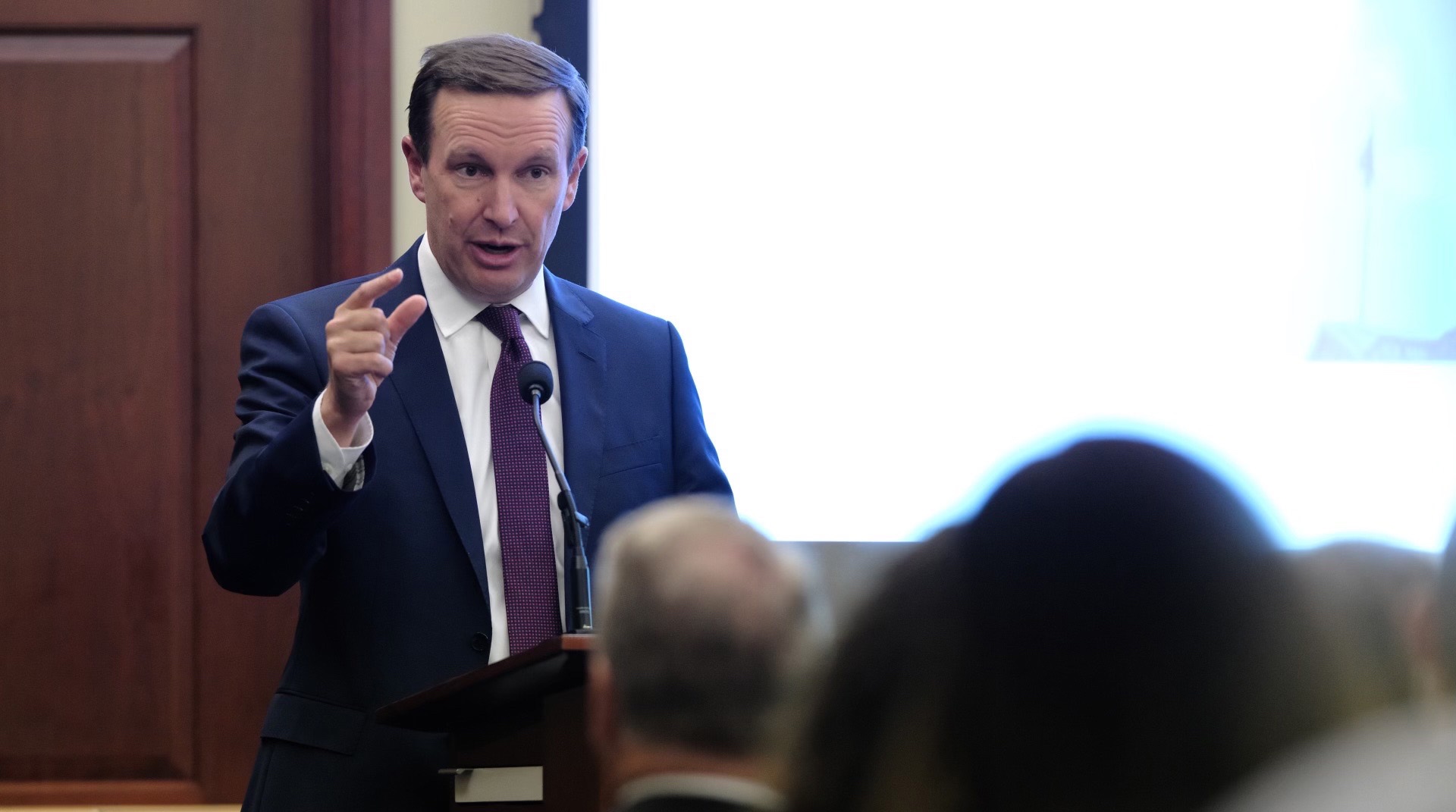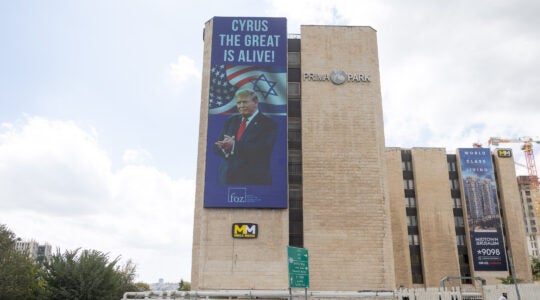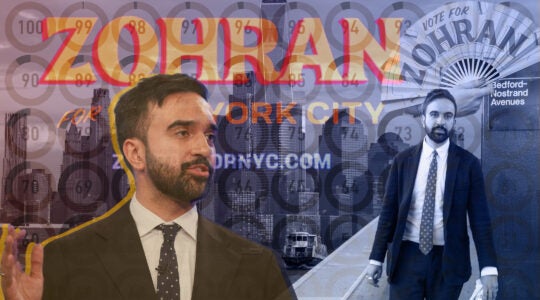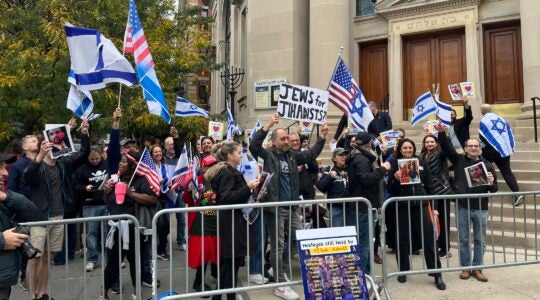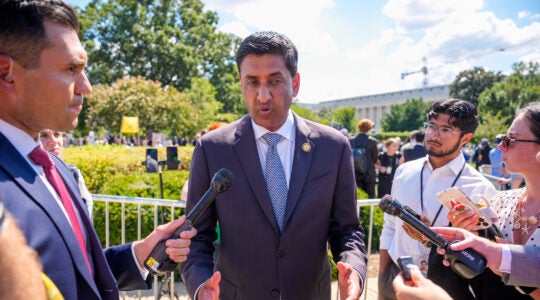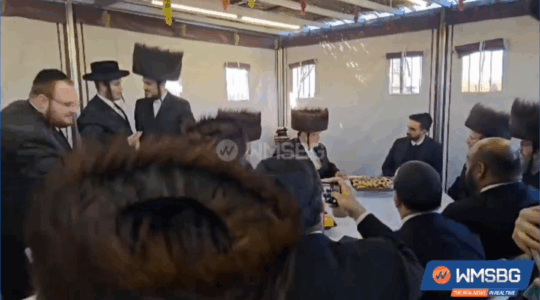WASHINGTON (JTA) — As the High Holidays near, Rabbi Mara Nathan doesn’t expect the recent wave of fake bomb threats directed at synagogues to significantly change the way she and her congregation worship together.
After all, her synagogue will already have its usual, extensive array of security measures in place: from bomb-sniffing dogs and security checks for each attendee to coordination with the local police department and FBI office. But she said emotions were running high as news reports piled up about synagogues evacuated after facing threats, often while livestreaming services.
“I think we’re on high alert,” said Nathan, the senior rabbi at San Antonio’s Temple Beth-El, a Reform congregation, “maybe a little more than usual.”
Nathan’s approach underscores how synagogues across the country have responded to the reports of rising antisemitism in recent years, and how a recent wave of nearly 50 spurious bomb threats is affecting — and not affecting — their procedures. The bomb threats, which have led to the evacuation of congregations from California to Florida, come after many synagogues have adopted a posture of readiness following the 2018 Pittsburgh synagogue shooting and other violent antisemitic incidents.
“Law enforcement and the synagogues have to respond to it because you don’t ever know when it’s actually going to be the real thing,” said Evan Bernstein, the CEO of the Community Security Service, which trains volunteers to patrol their synagogues. “When multiple things like this happen, people become numb and maybe won’t respond in the same way if, God forbid, something is legitimate.”
That reality was laid out at a briefing on Capitol Hill Tuesday focused on securing Jewish institutions during the High Holidays, which begin with Rosh Hashanah on Friday night. The briefing focused on the false bomb threat incidents, which security consultants predicted would continue because they lead to significant disruption with minimal effort.
“The increase in the bomb threats and the swatting incidents are designed to get a law enforcement response,” Michael Masters, CEO of the Secure Community Network, told the Jewish Telegraphic Agency, using a term that refers to making prank calls in order to generate a police response. “They’re designed to create fear, they’re designed to create confusion.”
Leaders of the Secure Community Network, which coordinates security for Jewish institutions nationwide, told members of Congress and their staffers at the hearing that the bomb threats have become a popular tool for extremists. SCN and its partner organization, the Jewish Federations of North America, organized the 90-minute briefing.
“They actually targeted a livestreaming of the service so that they can witness the police coming in and disrupting the service during this swatting session,” said Kerry Sleeper, a former FBI assistant director who is now a senior adviser to Masters’ group, referring to a bomb threat during services in July at Beth Israel Congregation in Ann Arbor, Michigan.
(The Ann Arbor synagogue has for years been the target of anti-Israel and antisemitic protesters. Courts have rejected attempts by some of the congregants to stop the protests.)
“Here’s one my fren [sic] did yesterday,” said a message on Telegram, a social platform popular with extremists, which was attached to a video of a rabbi conducting services. “It’s funni [sic] bc when we swat them they have to shut down the synagogue for the day.”
One long-term result extremists are hoping for would be to inhibit Jewish expression, Sleeper said. “The question has to be obviously, do you have the comfort, the security to enter into a house of worship after there’s been a bomb threat or the threat of a shooting?” he said.
Masters said that ahead of the High Holidays, when sanctuaries see their highest attendance of the year, synagogues need to review security procedures in order to avoid panic if a threat is received.
He described methods that could head off panicked reactions during High Holiday services, including making contact with the local police department, reviewing an orderly evacuation plan and ensuring that police have officials in place to report whether an attack is indeed underway.
“In many jurisdictions, law enforcement is very proactive about sending someone to the synagogue, or at least doing a drive-by so … they know whether something or not is happening,” he said. “Having a point of contact at the synagogue that the law enforcement knows who they’re supposed to find, so they can do a coordinated response.”
The briefing also focused on a proposed increase of federal grants to protect synagogues and other religious institutions. The 18-year old program has grown exponentially in recent years as threats against Jewish and other institutions have increased, and there is an effort underway to raise funding from $250 million last year to $360 million.
“It is truly indispensable to the physical security of churches, synagogues, mosques, and all other faith based places of gatherings across the country,” Eric Fingerhut, CEO of the Jewish Federations of North America, said at the briefing. “There’s not a security camera or secure door that isn’t in some way costly and needing the help and support of these resources.”
Fingerhut added that Jewish federations have collectively spent hundreds of millions of dollars to enhance security for local institutions.
Sen. Chris Murphy, the Connecticut Democrat, said the briefing exhibited “the panoply of efforts we need to undertake in order to decrease the risk of physical harm to those who are in Jewish communities, for those who are showing up in synagogues, Jewish day schools.”
Increased preparedness due to the bomb threats is one of a few ways synagogues across the country are girding up ahead of the High Holidays. In New York City, the Community Security Initiative, which helps coordinate security for local institutions, is funding the purchase of one new patrol car each and other resources for four Jewish civilian security patrol groups that operate in heavily Orthodox neighborhoods in Brooklyn, where a rash of street-level incidents have added to safety concerns. Last week, Bernstein’s Community Security Service launched a partnership with the Orthodox Union, an umbrella group with hundreds of member synagogues nationwide.
The bomb threats have reverberated across the country. At the Chicago Loop Synagogue, president Lee Zoldan told JTA that local law enforcement — with whom Zoldan said the synagogue has a “very good relationship” — often keeps a presence in front of the building, which is located in downtown Chicago.
Zoldan said law enforcement officers are aware of the recent wave of bomb threats and that the synagogue has shared its holiday schedule so that police know when people will be in the building. In addition, a few months ago the synagogue purchased a metal detector, and is considering asking worshippers to be screened upon entrance for the High Holidays. Zoldan said the measure was a response to the rise of antisemitism in the United States, rather than any specific threat.
“Anything we can do to enhance security, we are going to do,” she added.
JTA has documented Jewish history in real-time for over a century. Keep our journalism strong by joining us in supporting independent, award-winning reporting.
